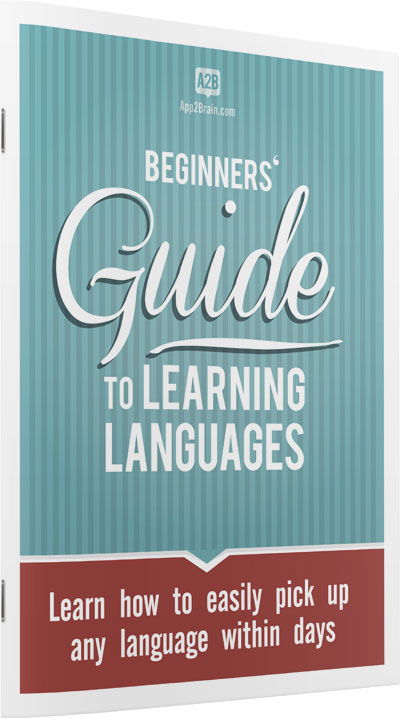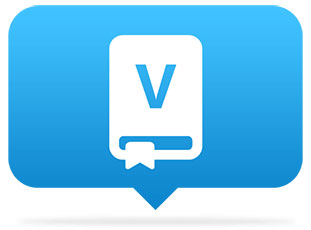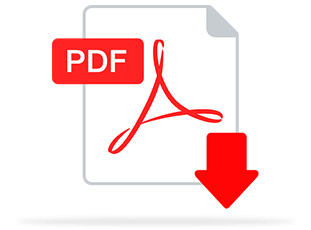Now let’s learn some basic Portuguese conversation. This lesson will teach you how to introduce yourself, as well as simple words and phrases like yes, no, excuse me and I don’t understand. Learn these and you’ll be ready to conduct short conversations in Portuguese.
Contents
This lesson is part of the chapter “Learning Portuguese“.

Previous lesson: Greeting & Farewell in Portuguese
Next lesson: Colors & Appearance in Portuguese
Basic conversation
| English | Portuguese | Pronunciation (Audio) |
|---|---|---|
| yes | sim | |
| no | não | |
| please / you’re welcome | por favor de nada | |
| you’re very welcome | você é muito bem-vindo | |
| thank you | obrigado | |
| thank you very much | muito obrigado | |
| thanks | obrigado | |
| Excuse me! | Desculpe! |
Communication
| English | Portuguese | Pronunciation (Audio) |
|---|---|---|
| I understand. | Entendo. | |
| I don’t understand. | Eu não entendo. | |
| Hello? (on the phone) / I beg your pardon? | Olá | |
| What does that mean? | O que significa isso? | |
| I don’t know. | Eu não sei. | |
| I don’t speak Polish. | Eu não falo Polaco. | |
| I speak a little Polish. | Falo um pouco de Polaco. | |
| Do you speak English? (informal) | Falas Inglês? | |
| Do you speak English? (formal) | Você fala Inglês? | |
| Yes, I do speak English. | Sim, eu falo Inglês. | |
| No, I don’t speak English. | Não, eu não falo Inglês. |
Making acquaintances
| English | Portuguese | Pronunciation (Audio) |
|---|---|---|
| Please talk more slowly! | Por favor, fale mais devagar! | |
| Nice to meet you! | Prazer em conhecê-lo! | |
| How are you? | Como está? | |
| Good, thank you! | Bem, obrigado | |
| I’m well, thanks! | Estou bem, obrigado! | |
| Not bad, thanks! | Nada mau, muito obrigado! | |
| very bad | muito mau | |
| What’s your name? | Qual é o seu nome? | |
| My name is [...]. | O meu nome é […]. | |
| What’s your first name? | Qual é o seu primeiro nome? | |
| My first name is [...] | O meu primeiro nome é […]. | |
| How old are you? | Quantos anos tem? | |
| I’m [...] years old. | Eu tenho […] anos de idade. | |
| What are your hobbies? | Quais são os seus passatempos? | |
| What do you like doing? | O que gosta de fazer? | |
| What are you doing (at the moment)? | O que está a fazer (neste momento)? | |
| Where do you live? | Onde mora? | |
| I live in [...]. | Eu moro em […]. | |
| I’m from England | Eu sou da Inglaterra. | |
| I’m English | Eu sou Inglês. |
Vocabulary trainer: Conversations in Portuguese
How do you say
How are you?
in Portuguese?
Correct answers: 0Wrong answers: 0
Previous lesson: Greeting & Farewell in Portuguese
Next lesson: Colors & Appearance in Portuguese

Download your free language learning guide
Our free 18-page PDF ebook will teach you how to:
- Get (and stay) motivated learning a new language
- Achieve 80% of your goals with only 20% of the effort
- Make your learning experience more fun than ever
More Portuguese lessons
- Numbers in Portuguese
- Greeting & Farewell in Portuguese
- Basic Portuguese Verbs
- Basic Portuguese Nouns
- Basic Portuguese Adjectives
- Colors & Appearance in Portuguese
- Countries & Languages in Portuguese
- Date & Time in Portuguese
- Holidays & Good wishes in Portuguese
- Food & Drinks in Portuguese
- People & Professions in Portuguese
- Family & Friends in Portuguese
- Body & Health in Portuguese
- Cities & Traffic in Portuguese
- Travelling & Leisure time in Portuguese
- Portuguese videos
- Overview: Learn Portuguese


Leave A Comment